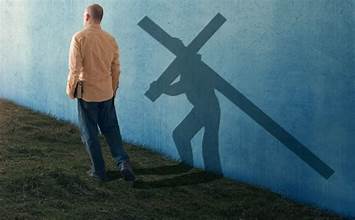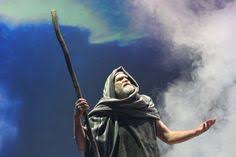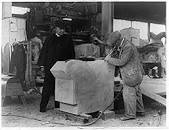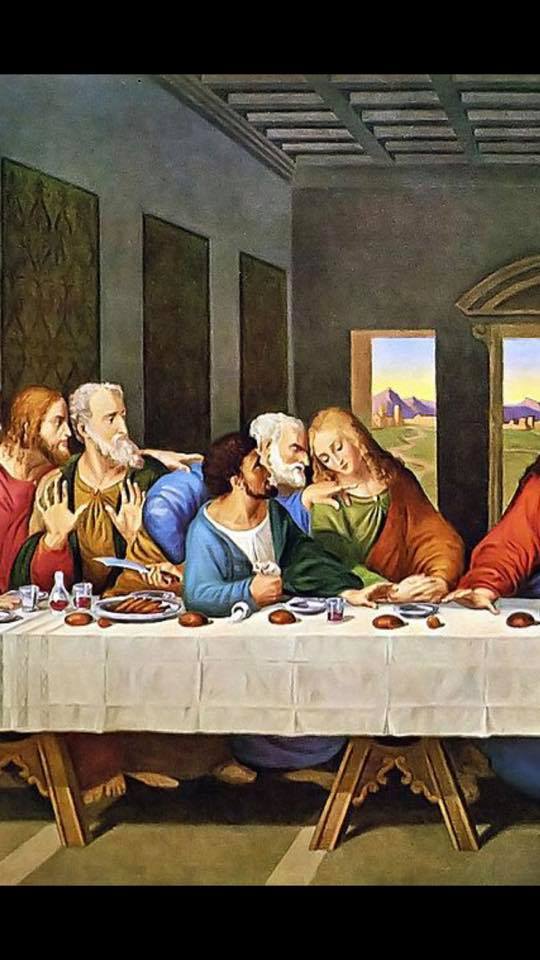Background Passage: Mark 8:31-37
Passing a large church in the Philippines several years ago, a pastor from the United States spotted a number of vendors selling incense, candles, veils and rosaries. That’s not really what caught his attention.
His eyes were drawn to two young boys running through the crowd selling small wooden crosses. Hawking their goods with enthusiasm, he heard them calling, “Crosses!. Cheap crosses for sale! Buy a cheap cross!”
It’s a painful reality, isn’t it? That’s exactly what many of us do. We want a cheap cross, one that demands little of us. All celebration and no commitment.
The cross of Christ was no cheap cross. It came at an unbelievable cost as a ransom for my sin…and yours.
Jesus and his disciples just returned from a staff retreat in Caesarea Philippi where Jesus earnestly began teaching them about the role God sent him to play. When Peter, in a moment of clarity, declared that Jesus was the Messiah, the Christ, God’s Anointed One, he got the title right. Despite his confession, he and the others still failed to understand exactly what that meant.
From that moment on, Jesus spoke more plainly to them about the suffering that was to come. Mark records the moment.
He then began to teach them that the Son of Man must suffer many things and be rejected by the elders, chief priest and teachers of the law, and then he must be killed and after three days rise again. He spoke plainly about this, and Peter took him aside and began to rebuke him. (Mark 8:31-32)
Peter missed the whole point of the lesson learned in Caesarea Philippi. Comfortable in his preconceived notions about what a Messiah should look like and how a Messiah should act, he pulled Jesus aside and fussed at him for saying anything contrary to his idea of a political deliverer. “This is not the way to win friends and influence people, Jesus.”
Peter’s response must have broken Jesus’ heart. Jesus glanced back at the disciples who still looked a little shellshocked at Jesus’ description of the work ahead and then at Peter’s “better listen to me” scowl. The whispered rebuke to his strongest disciple must have pierced Peter’s heart.
But when Jesus turned and looked at his disciples, he rebuked Peter, “Get behind me, Satan! he said. “You do not mind the things of God, but the things of men!” (Mark 8:33)
After a brief standoff, Jesus shook his head and sauntered back to the crowd that stood nearby. After a glance back at his disciples to make sure they were paying attention, Jesus laid his heart open for all to see.
If anyone would come after me, he must deny himself and take up his cross and follow me. For whomever wants to save his life will lose it, but whoever loses his life for me and for the gospel will save it. What good is it for a man to gain the whole world, yet forfeit his soul? Or what can a man give in exchange for his soul? (Mark 34-37)
Jesus seemed to tell them, “You call me Messiah, but have no clue what it means for me or for you…let me be clear.” Don’t you imagine the words he preached burned like hot coals into the core of Peter’s soul!
I can see Jesus looking straight into Peter’s eyes when he started his message. “If anyone would come after me…” These words speak to a decision point. More literally in the Greek, the phrase suggests, “to come to a point of being with…”
Jesus is telling them if you’re truly with me, if you’re going to walk with me, if that’s what you decide to do, then understand clearly the price you must pay.
When Jesus talks about denying oneself, he speaks of changing out one’s selfish heart with one that looks toward a greater good. Understanding what God needs you to do and not getting in his way. Moving away from being served toward serving.
You see, Peter’s picture of the Messiah was drastically different than the one Jesus was painting. The path he thought he was following far different from the one for which Jesus was preparing Peter and the rest of the disciples.
To deny oneself is to realize life is no longer all about me. No longer about my personal agenda. It is about the one to whom I belong. It’s about my service to others. It is about losing myself in Christ. It’s about allowing God to work in and through the gifts he gave me so Christ is revealed in me. Giving God custody and control of my life.
Paul hinted at this when he said, “…You are not your own; you were bought at a price. Therefore, honor God with your body.” (I Corinthians 6:19-20)
To take up one’s cross conjured up a horrific image within the context of those first century, would-be disciples. The cross stood as Rome’s unique and cruel form of public punishment and humiliation designed to keep the population in check. Its brutality was on display for all to see.
Undoubtedly, almost all, if not all, of those present that day with Jesus had witnessed its barbarity on display. They clearly understood the implications of what Jesus demanded of them.
If you make the decision to be with me, you must be prepared to give your life for my sake. There is nothing cheap about this cross. It was a cost too many, even in Jesus’ day, were unprepared to pay.
I think of the rich, young ruler who chased Jesus down and honestly shared his faithfulness to the teachings of scripture and his devotion to prayer and the slew of good thing he did for others. Jesus looked in his heart and saw that his lifestyle consumed him. Jesus suggested that if this rich, young man wanted to come with Jesus, he had to give up the lifestyle he enjoyed. (Matthew 19:16-22)
I think of the three men who came to Jesus while he was traveling, pledging to follow him wherever he went. The first turned back when he discovered the Jesus life would be a bit uncomfortable. The second man wanted to wait until his father died. The third man just needed a bit more time with his family and friends. (Luke 9:57-62)
Each in their own way threw up obstacles that prevented them from committing their all to Jesus. The cost of discipleship was too steep. It wasn’t a cheap cross then and it isn’t any less expensive today.
I’ve heard some trivialize this passage by interpreting the cross as some burden they have to bear…a physical illness, a soured relationship, a thankless job. It becomes little more than some aspect of life that is little more than a symbolic annoyance.
To the first century follower of Christ to take up the cross expressed the willingness to make the ultimate sacrifice for the cause of Christ. It didn’t mean everyone who followed Christ would die on the cross, but it meant a full surrender to that possibility. To give your life completely to him.
Jesus certainly understood the cost as he agonized over it in the Garden of Gethsemane. As he endured its painful reality at Calvary. But, when Jesus spoke the words, asking us to take up our cross, I believe Jesus thought less about the dying and more about surrendering. Yielding to whatever God asked of him. Asking us to yield to whatever God asks of us.
You can’t do that with a divided heart, holding on to a distorted or watered down version of what following Christ means. We must submit our hearts absolutely and without reservation to the call of Christ. It is a call of self-sacrifice and surrender. Paul called it “dying to self.”
Look how Jesus described the cross-bearing life in Luke 8:35. He said we gain life in all its abundance and fullness when we lose or surrender our lives to “me and to the gospel.” Absolute devotion to Christ and to the sharing of the gospel, the good news, of the grace offered through Jesus.
The questions Jesus then posed to the crowd conveyed the seriousness of that decision.
What good is it for a man to gain the whole world, yet forfeit his soul? Or, what can a man give in exchange for his soul?
The ancient Hebrew viewed the soul as the entire inner nature of man, the eternal and imperishable essence of every being. Based on our faith commitment to Christ it is that part of us that endures in the everlasting presence of God or separated from him for all eternity.
The passage ends with the consequence of the choice we make when we don’t take up the cross. We could gain all there is to gain in this world…all its wealth and power…all its beauty and bounty…yet when we die, we’ll find our souls outside the eternal presence of God, unable to share in his glory for all time.
Jesus said even if we gained the wealth of the whole world, it would not be enough to purchase what Jesus so freely gave.
Late in the nineteenth century, Justin Van DeVenter struggled with the decision to leave his teaching career and enter the ministry. He describes a pivotal turning point in his life when he gave in to God’s call.
“A new day was ushered into my life,” said Van DeVenter. “I discovered deep down in my soul a talent hitherto unknown to me. God had hidden a song in my heart and, touching a tender chord, caused me to sing.”
It was a song that would profoundly influence Billy Graham’s early ministry. I suspect his words touched many of us as well.
All to Jesus I surrender;
All to him I freely give.
I will ever love and trust him,
In his presence daily live.
I surrender all.
I surrender all.
All to thee my blessed Savior,
I surrender all.
Jesus calls us to take up our cross. To do so means surrendering all to him. I’d like to say I do that every day, but I don’t. It’s easier to hide behind an obstacle, make an excuse or convince myself that I know better. I’ll surrender some things but hold tightly to others.
Then, I hear those words again. “What good is it for a man to gain the whole world, but forfeit his soul?” The answer is clear. No good at all. The cross is not cheap.
Let’s allow that old hymn resonate knowing full well the cost.
All to Jesus I surrender.
I surrender all.






